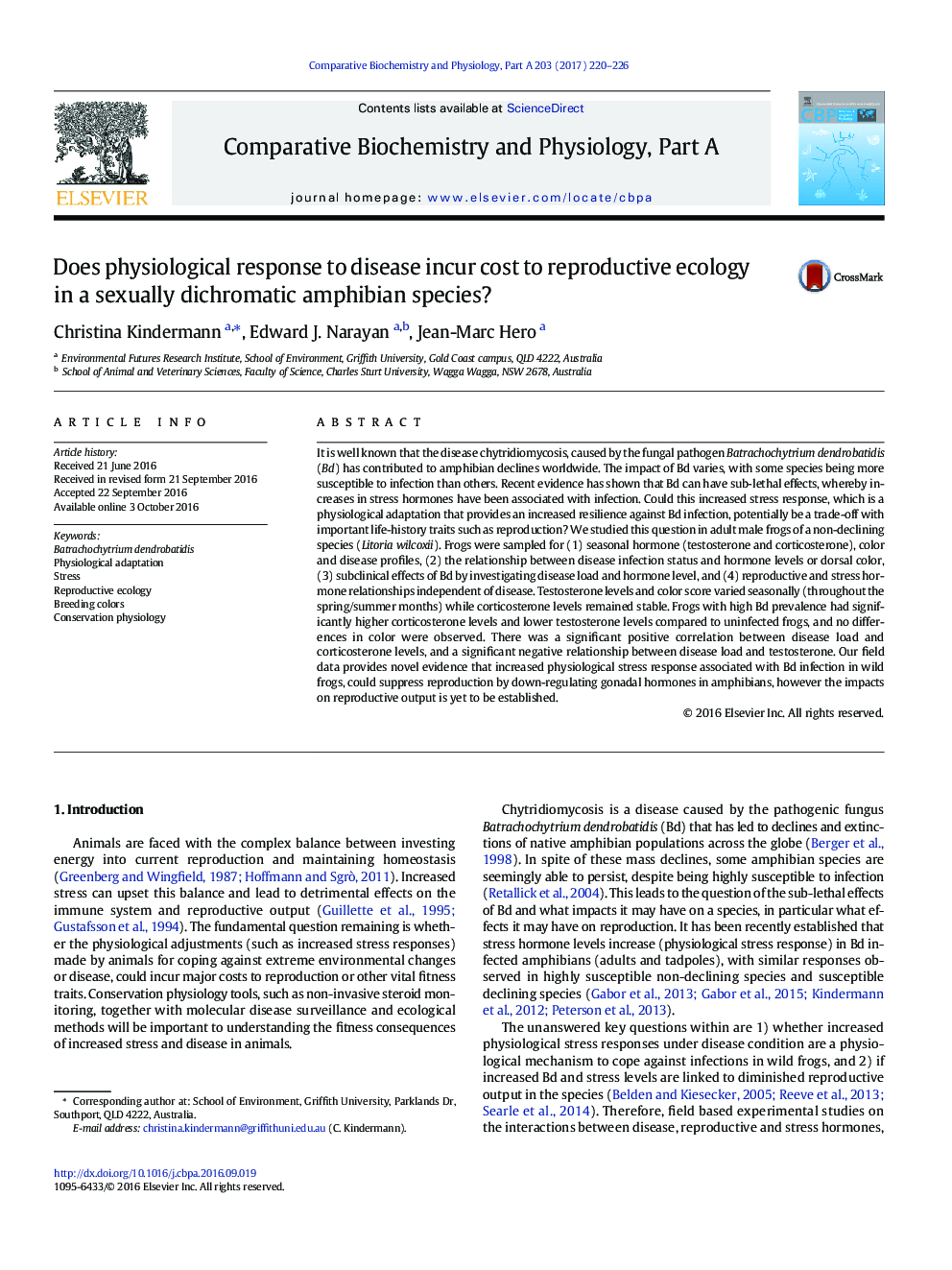| Article ID | Journal | Published Year | Pages | File Type |
|---|---|---|---|---|
| 8318407 | Comparative Biochemistry and Physiology Part A: Molecular & Integrative Physiology | 2017 | 7 Pages |
Abstract
It is well known that the disease chytridiomycosis, caused by the fungal pathogen Batrachochytrium dendrobatidis (Bd) has contributed to amphibian declines worldwide. The impact of Bd varies, with some species being more susceptible to infection than others. Recent evidence has shown that Bd can have sub-lethal effects, whereby increases in stress hormones have been associated with infection. Could this increased stress response, which is a physiological adaptation that provides an increased resilience against Bd infection, potentially be a trade-off with important life-history traits such as reproduction? We studied this question in adult male frogs of a non-declining species (Litoria wilcoxii). Frogs were sampled for (1) seasonal hormone (testosterone and corticosterone), color and disease profiles, (2) the relationship between disease infection status and hormone levels or dorsal color, (3) subclinical effects of Bd by investigating disease load and hormone level, and (4) reproductive and stress hormone relationships independent of disease. Testosterone levels and color score varied seasonally (throughout the spring/summer months) while corticosterone levels remained stable. Frogs with high Bd prevalence had significantly higher corticosterone levels and lower testosterone levels compared to uninfected frogs, and no differences in color were observed. There was a significant positive correlation between disease load and corticosterone levels, and a significant negative relationship between disease load and testosterone. Our field data provides novel evidence that increased physiological stress response associated with Bd infection in wild frogs, could suppress reproduction by down-regulating gonadal hormones in amphibians, however the impacts on reproductive output is yet to be established.
Keywords
Related Topics
Life Sciences
Biochemistry, Genetics and Molecular Biology
Biochemistry
Authors
Christina Kindermann, Edward J. Narayan, Jean-Marc Hero,
